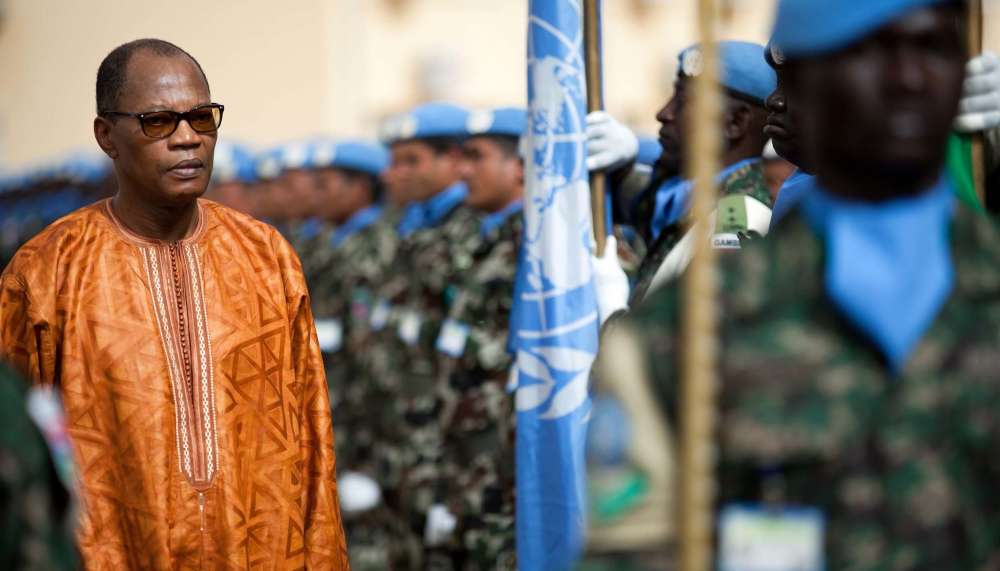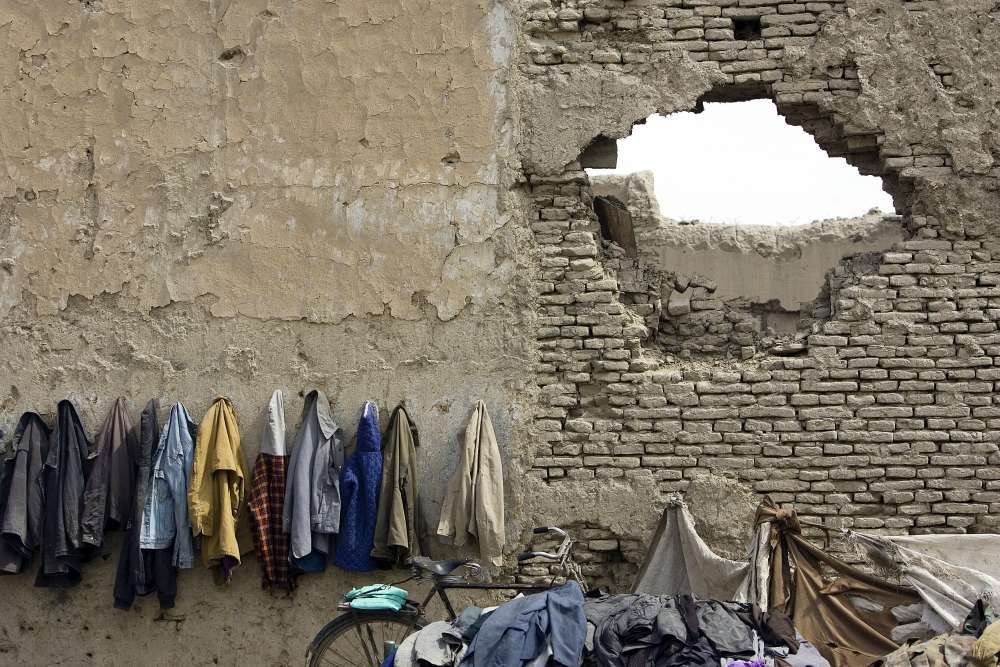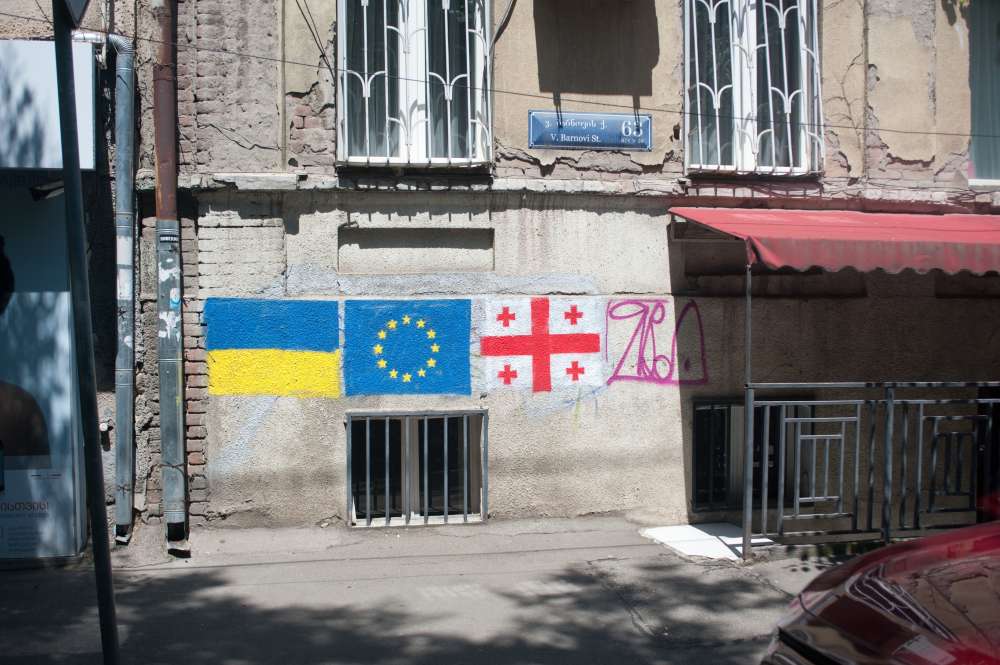Conflict Prevention: Scoring Small Wins

All the wars and atrocities we see today are failures of prevention: failures of governments, armed groups, and of the multilateral system. Examples can be found in Syria, Afghanistan, Iraq, Myanmar, South Sudan, the Central African Republic, Sri Lanka, Ukraine, and Yemen – and this list could still be extended. Hence, there are regular calls to actively engage in conflict prevention. But these appeals sometimes sound like platitudes: after all, by engaging in proxy warfare, both great powers and regional ones actively foment conflicts and violence, while multilateral institutions, including the UN Security Council, are frequently paralyzed.
Away from the big stage of geopolitical rivalries, the multilateral system has logged some success in preventing conflicts.
And yet, away from the big stage of geopolitical rivalries, the multilateral system has logged some success in preventing conflicts. These successes merit greater attention than they currently get, not only because they give us a more balanced appreciation of what the system can do but also as sources of valuable lessons on how to make it work better. Three case studies exemplify this in particular.
In the Gambia, in late 2016, civil war was about to erupt. The country’s president, Yahya Jammeh, who had been in power for more than two decades, refused to step aside after losing the presidential election. Skillful diplomacy by the UN and the Economic Community of West African States (ECOWAS), backed by the credible threat of military force, finally compelled Jammeh to abdicate power.
In Bolivia, UN development actors – mostly Bolivian nationals working under the flag of UN impartiality– helped successive governments navigate a series of political crises that plagued the country in the 2000s and that repeatedly threatened to escalate into violent ethnic and racial conflict.
In Nepal, a UN peace operation, the United Nations Political Mission in Nepal (UNMIN), was instrumental in monitoring the implementation of a peace agreement reached between the Nepalese government and the Maoist party in 2006.
In all these cases, multilateral actors helped to manage tensions that could well have escalated into (further) violent conflict. A closer look at each of these cases illustrates the roles multilateral actors and institutions can play and under what conditions their efforts are most likely to succeed.
First, multilateral institutions are uniquely equipped to mediate between conflict parties. They can either act as intermediaries themselves or – if they throw their weight behind another actor – empower others to take on the mediator’s role.
Their unique ability to do so rests on their image as generally impartial – that is, politically nonpartisan – entities that do not just represent the interests of one party but those of the wider international community. Put differently, the success of mediation efforts does not just depend on the envoys’ capabilities, including their political savvy, but also on their perceived authority and legitimacy. Being formally mandated (or endorsed) by one or several multilateral organizations credibly signals that the envoy will be able to pay heed to the concerns of various relevant stakeholders.
Still, envoys and other representatives of the multilateral system need to carefully manage their relationships with host governments. If they overstep their mandate and try to dominate domestic prevention efforts rather than supporting them from the background, they risk losing the consent and trust they have received from national actors; if, on the other hand, they are too risk-averse to raise thorny issues with the host government, they risk losing their reputation as impartial, values-based intermediaries.
In the Gambia, the UN envoy was particularly given to working from the background: he carefully prompted regional heads of state to talk the president into accepting his electoral defeat. Thus, the most important voices were the president’s authoritarian colleagues, whom he perceived as credible interlocutors in efforts to negotiate his inner circle’s political future. In the end, President Jammeh accepted exile in return for immunity from prosecution.
Second, multilateral actors can facilitate negotiations by providing impartial political and technical support. This assistance can take diverse forms, including supplying relevant expertise, staff capacities, data, and analysis, or even just offering logistic support such as transportation to facilitate in person negotiations.
Multilateral actors can facilitate negotiations by providing impartial political and technical support, including supplying relevant expertise, staff capacities, data, and analysis.
For instance, in Nepal, UNMIN and the UN Country Team offered crucial assistance to national actors in implementing the 2006 peace agreement that officially ended a decade of civil war between Maoist rebels and the government of Nepal. Most importantly, they helped monitor disarmament efforts and prepare the election of the Constituent Assembly in 2007. In addition, through the establishment of a UN Peace Fund for Nepal, the UN was able to mobilize financial resources to address urgent funding gaps in the implementation of the peace agreement.
The fund supported projects that aimed at addressing root causes of the conflict like the exclusion of marginalized groups. It particularly focused on women, youths, and indigenous people, supporting efforts to improve their access to public services or initiatives to create jobs. The fund also provided the resources needed for the effective demobilization of Maoist combatants. All of this lessened tensions between domestic political factions and helped stabilize the post-conflict situation.
In Bolivia, the UN Development Programme (UNDP) developed a robust data and analysis unit called Project of Political Analysis and Prospective Scenarios (PAPEP). PAPEP collected original data via surveys, interviews, and other methodologies and developed scenarios and political roadmaps to guide high-level government actors in making decisions that would reduce the risk of conflict. For instance, in the 2008 constitutional crisis, PAPEP polls revealed that a vast share of the Bolivian population wanted parties to continue their political dialogue, in turn creating the necessary pressure for actors to settle their differences. The resulting agreement averted another escalation of violence. UNDP’s credibility as a well-informed and reliable source of risk analysis repeatedly created opportunities for the institution to engage with national actors, who looked to the UN for political advice on de-escalation policies.
At times, technical support may also just mean allowing conflict parties to meet and talk. In the Gambia, for instance, the UN regional office provided a small airplane, easily recognizable as UN property and thus as impartial, to help regional leaders conduct shuttle diplomacy. This was crucial, given the region’s cumbersome commercial flight connections and the fact that the Gambia’s intransigent ruler had denied landing permissions to the aircraft used by regional leaders he did not fully trust.
And third, multilateral actors can back political strategies with military force. The UN and ECOWAS negotiators successfully employed coercive diplomacy in the Gambia. Faced with a repressive, authoritarian president who had lost the election but was unwilling to stand down, neighboring countries prepared for a military operation to oust President Jammeh. If they had followed through on this, it could have sparked a bloodbath. The UN regional office and ECOWAS thus worked in concert with the African Union, the UN Security Council, and key regional governments to find a peaceful resolution to the standoff. Coercive diplomacy did the trick: the offer to negotiate, backed by the credible threat of a military intervention by a joint ECOWAS force, which even entered Gambian soil and airspace but did not engage in physical violence, finally forced the president to negotiate his exit.
After Jammeh had left the country, the ECOWAS mission assumed a stabilization role, protecting the incoming administration during the transition period. This example shows that military force may indeed play a role in preventive efforts. Yet, it does not serve the traditional purpose of “defeating” the “opponent” but aims at forcing conflict parties to the negotiating table.
The magic mojo of multilateralism can make a real difference if there is sufficient political will among key actors to resolve their conflicts.
In none of these cases did multilateral actors just sweep in and fix things. The conflict parties themselves, often under pressure from other regional actors, played the key roles. This shows that the magic mojo of multilateralism can make a real difference if there is sufficient political will among key actors to resolve their conflicts. Multilateral actors can then help remove practical obstacles and challenges on this path. Most importantly, multilateral actors can make a difference by adding legitimacy, credibility, and trust as well as impartial political and technical support and even military pressure as part of a political strategy. Yet, in order to be successful, the UN and others can only build on existing political will – they cannot create the will for peace out of thin air. For instance, in the Gambian case, success depended on the existing political will of key ECOWAS members to apply calibrated force. There is no multilateral magic bullet that can stop governments from killing or abusing their own people.
Likewise, multilateral conflict prevention can be substantially complicated if great or regional powers have strong stakes in the conflict. Luckily, the three cases examined were spared this fate. That said, a difficult geopolitical context is no excuse for cases where the UN or regional organizations have failed on their own. In the final months of Sri Lanka’s civil war in 2008 – 2009, for example, the UN was found to have gravely failed to protect hundreds of thousands of civilians because it did not adequately react to repeated warnings about killings. In South Sudan, tens of thousands of people were killed since 2013 while the regional organizations that could have reacted have been held hostage by the power games of several African governments.
Fortunately, most of the world is not Syria or Ukraine. There are serious conflict risks inherent in “easier” cases, where contextual conditions are more favorable to prevention efforts and where multilateral actors have critical assets to contribute. Multilaterals can get these cases right – and they must, lest even more of the “easier” cases become “difficult” ones.
…
This piece was originally published in the Munich Young Leaders 10th Anniversary Report Multilateralism is Dead. Long live Multilateralism! by the Munich Security Conference and Körber Foundation.







